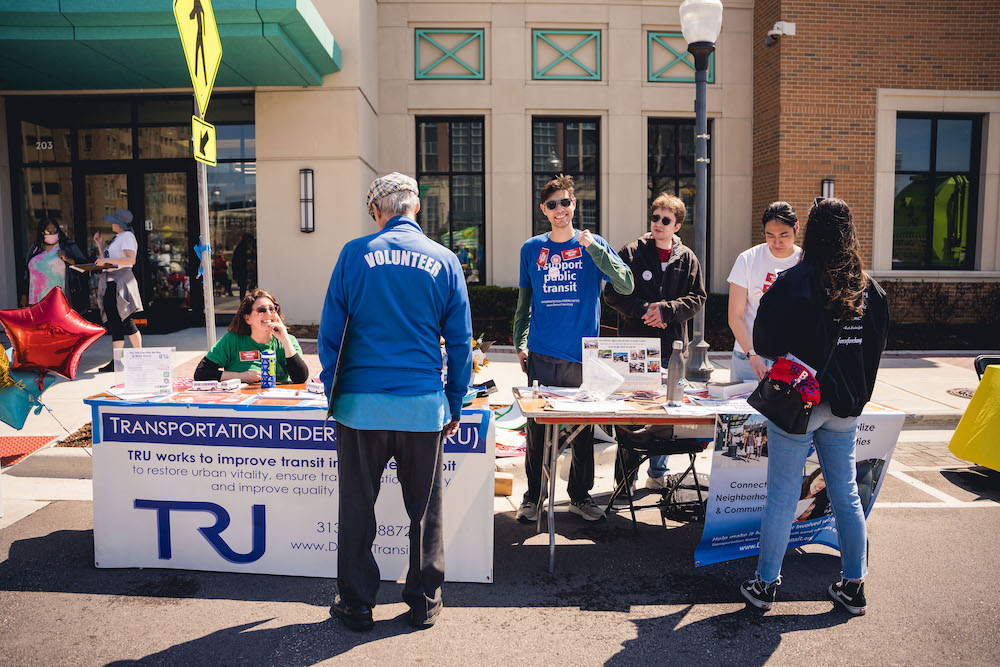Since 2013, TransitCenter has spent over $50 million to support transit advocacy – both our own and that of allied organizations.
Our 2025 grants list is available to review below:
Alliance of Californians for Community Empowerment (Sacramento Chapter)
A grant to support the transit advocacy work of the Sacramento office of ACCE, a grassroots powerbuilding organization that is active in both the housing and transit advocacy spaces. We view ACCE as an opportunity to experiment with using the same strategies and tactics used to organizing renters to organize transit riders.
Metropolitan Organizing Strategy Enabling Strength (MOSES)
MOSES is a community organizing network in Minnesota that works to empower congregations, communities, and civic leaders to address social issues like equity, justice, and public policy through grassroots organizing.
Genesis Interfaith Community Organizing
An organization that organizes faith communities in the Bay Area, and has primarily been vocal about issues relating to paratransit.
Illinois Environmental Council Education Fund
A grant to support IEC’s work because of their role as a co-leader of the transit table of the Illiniois Clean Jobs Coalition.
Transit Forward Philadelphia
This is a grant to support Transit Forward Philadelphia’s advocacy in and around the city, as SEPTA faced the potential of major cuts to service due to an impending fiscal cliff. TFP and their coalition have held dozens of in-person and online events to rally support for fully funding SEPTA, and has been an active participant in the state coalition.
Public Advocates
A grant to support research on progressive funding sources for transit in the Bay Area.
State Smart Transportation Institute (SSTI)
This project grant support provides resources to SSTI to launch a network for state DOT staff working on who are engaged in sustainability, equity, and climate-related initiatives. The network will focus on implementation strategies that reduce emissions and promote sustainability, including investment in transit, safe streets, and biking and walking infrastructure. TransitCenter support of SSTI is rooted in supporting the expansion of government stakeholders advocating for transit, within our strategy to broaden the stakeholders.
Midwest Leadership Study Tour
This project grant support provides resources for the Midwest study trip – which focuses on Advancing Transit Innovation Through Global Collaboration. A delegation of senior government officials and philanthropic program officers from Minnesota, Michigan, and Illinois—three key focus states for TransitCenter—completed an immersive study tour to Paris, France. This initiative directly supports TransitCenter’s mission to broaden stakeholder engagement and mobilize philanthropic action for equitable, climate-forward transit systems.
Bike Durham
This general operating support provides resources to Bike Durham as they build power to effect the transformation of Durham’s transportation system to one with zero traffic deaths or serious injuries, zero carbon emissions, and zero racial disparity of access by 2050. TransitCenter support of Bike Durham is rooted in growing the base of advocates for transit, within our local powerbuilding strategy. This grant enables Bike Durham to pursue changes to funding levels at the local, regional, state, and federal levels to invest much more in delivering an excellent transit system and complete networks of safe streets for biking and walking, and much less in highway expansion.
Greater Greater Washington Commons
This general operating support provides resources to Greater Greater Washington to lead the DC Transportation Equity Network, a cross-sector coalition of organizations that is committed to seeing a complete transportation system that ensures vulnerable residents are accounted for in the District of Columbia. TransitCenter’s support of Greater Greater Washington has helped the TEN to become the most visible voice for transportation equity in DC and serves as a source of guidance to elected officials, DC agencies, and WMATA.
